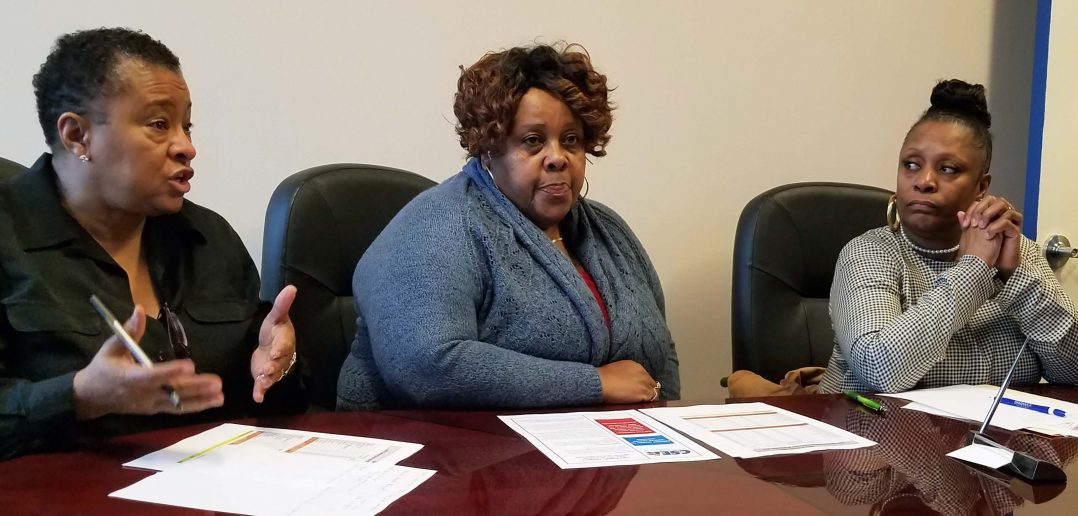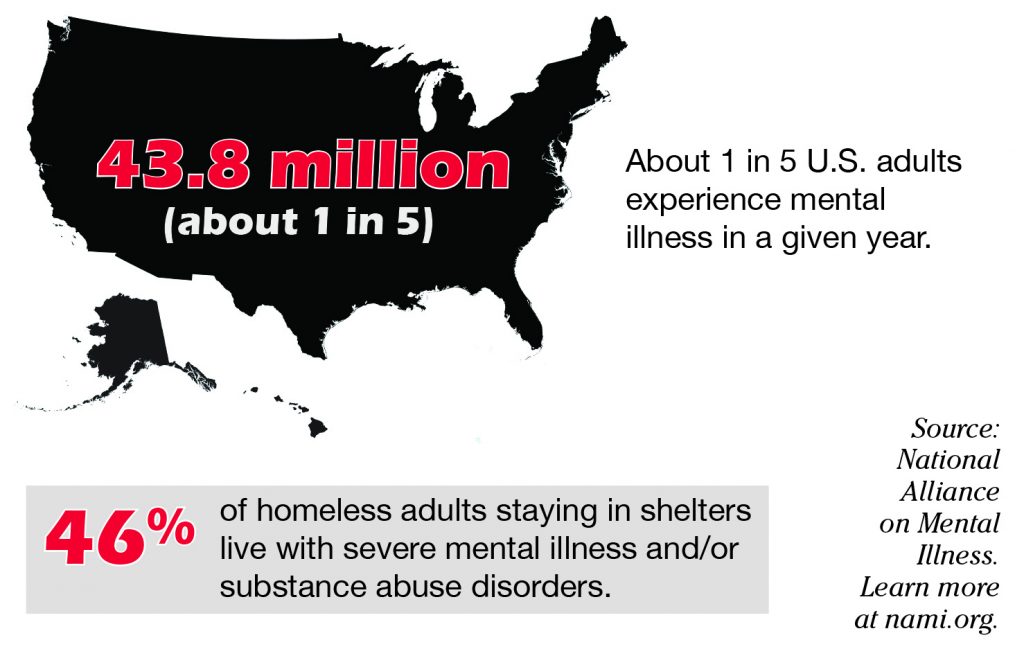PEARL RIVER — As workers on the front lines of caring for individuals with mental illness, our officers from the Rockland Psychiatric Center Local say the state’s proposal to cut inpatient beds from state Office of Mental Health (OMH) facilities will hurt vulnerable New Yorkers at a time when a national conversation on mental health treatment is finally picking up steam.

Southern Region President Billy Riccaldo, right, meets with
Assemblymember Ellen Jaffee, left and Jaffee staffer Rita Borst, middle.
CSEA Rockland Psychiatric Center Local officers recently visited state Assemblymember Ellen Jaffee to share our union’s opposition to the state budget’s proposed cuts and explain their potential effect on adult and children’s inpatient facilities.
“People are not getting the treatment they so badly need,” said Local President Brenda Gamble. “Because we don’t have enough beds, people who need treatment from qualified professionals wind up in the emergency room, in jails, or in the community.”
Since 2014, Rockland Psychiatric Center has had 62 beds cut from facilities for adults and 34 beds cut from the children’s hospital.
Gamble, along with other Rockland Psychiatric Center Local officers Tyjuana Parker and Sonya Rogers, explained that cutting OMH inpatient beds doesn’t even meet the goal of taxpayer savings when factoring in the costs of incarceration and emergency treatment for individuals better served by inpatient treatment.
“People with mental illness are better served receiving the comprehensive services they need, rather than winding up in jail with limited access to doctors and treatment,” Gamble said.
Rockland Psychiatric Center’s catchment area is one example where consolidation of mental health services has left residents without adequate access to treatment. When the Middletown Psychiatric Center and Hudson River Psychiatric Center campuses closed and the facilities merged with Rockland, the greater Middletown and Poughkeepsie communities lost that local access to care. Exacerbating that has been cuts in county and non-profit mental health clinics and hospitals.
While the recent uptick in school shootings is raising discussion about available mental health treatment, CSEA leaders have already been trying to raise awareness in their communities.
Parker raised the idea with her pastor of having Mental Health May at First Baptist Church in Spring Valley, and bringing in speakers to educate the congregation about the struggles faced by neighbors struggling with mental illness.
It isn’t uncommon to have individuals in need of treatment in the pews during Sunday services, Parker said.
As this edition was going to press, state lawmakers and the governor were still working on a final state budget agreement.
— Jessica Ladlee




